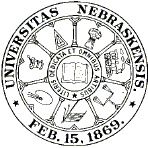
University Studies (University of Nebraska) (1888–1984)
Date of this Version
1-1925
Citation
University Studies, Vol. XXV JANUARY, 1925 No. 1
(c) 1925 by the Board of Regents of the University of Nebraska
Abstract
During the hundred years from Elizabeth to Cromwell European thinkers became acutely conscious of many of the problems and ideas that concern us most intimately even today. In philosophy, in science, in the arts, and in theories of sovereignty and of the state, the foundations were laid for later thought and practice. The most serious wars, unlike the national jealousies of the eighteenth century which were often dynastic, were fought in defense of some conscientious scruple, however much their significance might be clouded by royal ambition or greed.
Three of these in particular give us a group of thinkers on the powers of the state, the question of sovereignty, and above all the meaning of liberty. The Civil War in France between the League and the Huguenots anticipates in a curious way the war a half century later in England between the Parliament and Charles I, and chiefly in the way in which both parties, Catholic and Protestant, set about a search for motives for the deposition of a sovereign who outraged the religious and political scruples of a considerable number of his subjects. The Dutch likewise in their long war for freedom from Spain were compelled to buttress their faith by searching for sound principles of political science. The constitutional revolt that gave France Jean Bodin and the Netherlands Althusius and Hugo Grotius, gave England, among others, John Milton.

